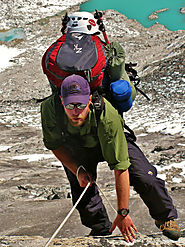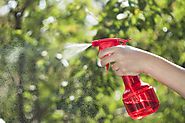-
About
- About Listly
- Community & Support
- Howto
- Chrome Extension
- Bookmarklet
- WordPress Plugin
- Listly Premium
- Privacy
- Terms
- DMCA Copyright
- © 2010-2025 Boomy Labs

 Soccer Garage
Soccer Garage
Listly by Soccer Garage
With the spring soccer season underway and the hot dog days of summer quickly approaching, it’s time to start thinking about the heat and player safety. Soccer is an active sport where dehydration and heat stroke and heat exhaustion is common, especially in warm, sunny weather. To protect players and help boost their performance on the field, here are 7 ways to soccer players can keep cool while playing in warm spring and summer months:

Heavy clothing can add just enough weight and impede free movement to require additional effort, which in turns uses more water, electrolytes and calories. When it’s hot out, you need to limit and wisely allocate the amount of effort spent to avoid getting overheated. Loose clothing that is light also won’t be as likely to stick to the surface of skin, which can prevent the body from cooling down.

When the body sweats, it uses water. Hot, humid weather causes the body to sweat more in order to cool itself down. Players need to regularly drink water and electrolyte packed sports drinks to replenish the water and electrolytes lost in sweat. When these aren’t adequately replaced, muscle soreness and cramping, headaches, heat stroke, heat exhaustion, nausea, heart problems and brain issues can occur.

Soccer is a physically demanding game in and of itself. Add sunlight and warmer temperatures, and the body becomes subjected to more stress and quicker exhaustion. Regular breaks during practice or a game can give the body time to relax and cool off.

If possible, avoid playing or practicing during the hottest parts of the day. Soccer will quickly warm players up on a chilly morning or evening. When soccer is played at noon or early in the afternoon when it is the warmest, players’ bodies will be subjected to more stress which increases their chances of getting too hot and dehydrated.

Water is crucial in keeping players hydrated. However, water doesn’t only come from liquids. It can also come from food. Additionally, essential nutrients such as carbohydrates and protein that can improve player performance come from a healthy, well-balanced diet. Carbohydrates help the body burn fat when exercising which improves energy and performance. Protein helps strengthen and nourish muscles. When body organs and muscles are healthy, they will work more efficiently and not require as much water to function properly.

If a tournament or camp is held during a hot day, there isn’t really much you can do other than drink plenty of water, wear appropriate clothing and take breaks. Nevertheless that sudden exposure to extreme hot or humid conditions can bring on more shock to the body. The body, however, can acclimate to hot weather. It just takes a few day. Exposing your body to the heat for a few days prior to your game can help it get acclimated and better utilize liquids.

While drinking plenty of liquids before, during and after a practice or game is vitally important, spraying players with a mister is a great way to provide an instant cool down of their overheated bodies. Not only does it provide instant relief, the cool mist can help the body relax and lower its temperature which can help alleviate heat-related symptoms such as fatigue, headache, muscle soreness and rapid heart rate.
Soccer is a physically demanding game that requires players to exert a lot of energy and be constantly on the move. This causes the body to warm up which produces sweat and increases the risk of dehydration, muscle cramping, headaches, heart problems, stroke and heat exhaustion. Playing in warmer temperatures can increase the chances of players getting sick and injured. During the warm spring and summer months, it is important for players to stay hydrated, wear light, loose clothing, eat healthy and take regular breaks to avoid overheating.
